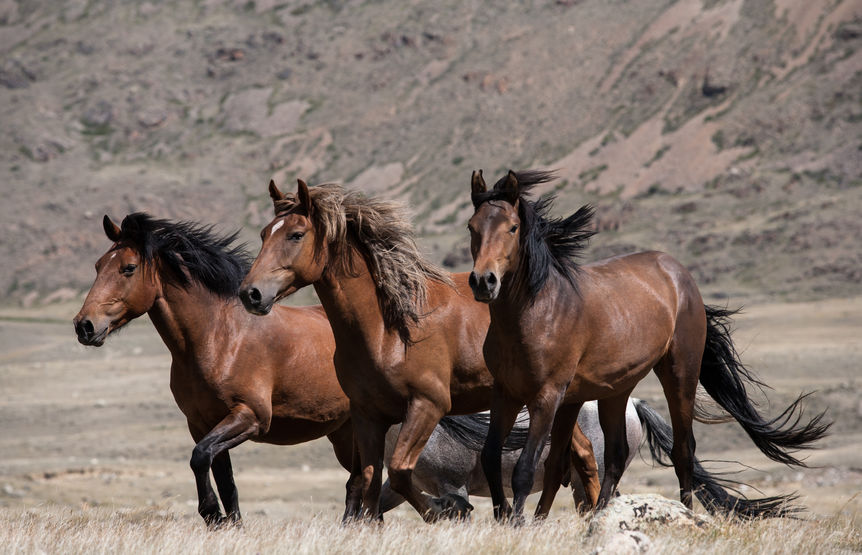“Wild horses can’t drag me away” is the refrain of a popular Rolling Stones song from the 1970’s. Today, the Bureau of Land Management (BLM) is humming a revised version of the classic song, something akin to, “Wild Horses, time to drag ‘em away.”
The reason for the change in tune is that wild mustangs and burro’s are flourishing to the point of overwhelming the American West. Because of government protections and virtually no natural predators, the numbers of these free-roaming animals have skyrocketed upward to a level of 82,000 – a figure that is set to double every four years. This is already nearly triple the amount designated as an “appropriate management level” set by the BLM.
Ecologically, the mustangs are chomping down vegetation at an alarming rate, so much so that conservationists believe many will starve unless moved to greener pastures. They are also impacting other animals, such as sage grouse and elk by disrupting their habitat.
It’s clear that the status quo is unsustainable.
Fortunately, the BLM has been moving in the right direction using market incentives to get private owners to acquire horses and take them in. As explained by Hannah Downey and Tate Watkins in a recent article by the group PERC:
“To combat these effects, the BLM regularly gathers excess animals and moves them to off-range corrals and pastures, offering them for adoption to good homes using auctions that require a minimum bid of $125. Though this approach has had a degree of success, nearly 51,000 horses and burros remain in off-range facilities. According to the BLM, the lifetime cost of caring for a single horse in one of these facilities is approximately $48,000. The total annual cost to taxpayers for the holding facilities runs to $50 million — or more than half of the entire Wild Horse and Burro Program budget.
The new incentive payment program will slash the minimum bid to just $25 and pay adopters a $500 first installment once new owners have demonstrated that they’re providing quality homes. After a 12-month probationary period designed to ensure adopted animals are being treated well, owners will receive title to their horse or burro and a second $500 payment.”
For more information on this program, click here.
